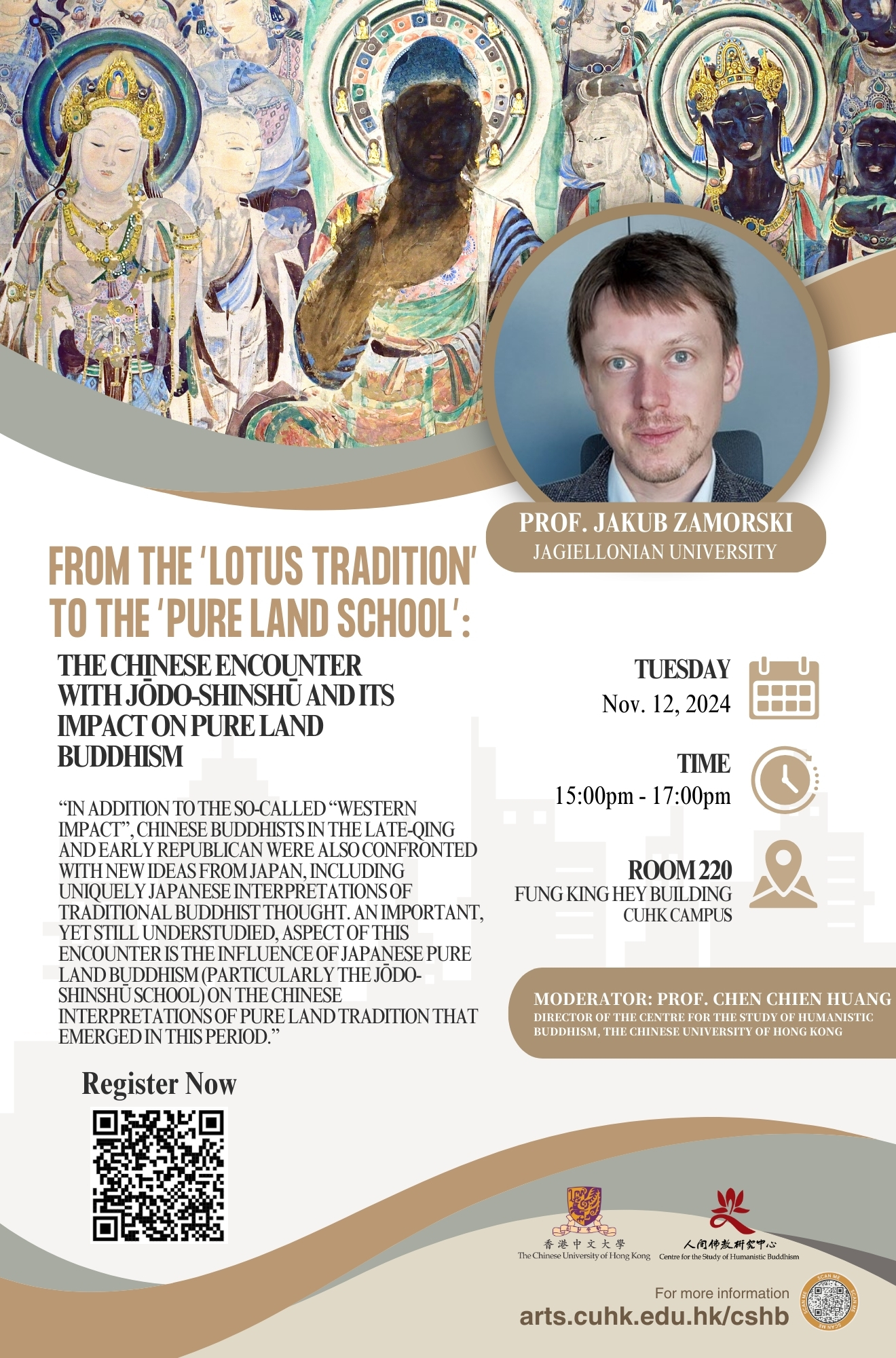Events
From the “Lotus Tradition” to the “Pure Land school”: The Chinese Encounter with Jōdo-Shinshū and its Impact on Pure Land Buddhism
12 Nov 2024
15:00~ 17:00
Fung King Hey Building, The Chinese University of Hong Kong
Prof. Jakub Zamorski (Jagiellonian University)
Jakub Zamorski is assistant professor and lecturer in East Asian Buddhism at the Centre for Comparative Studies of Civilisations of the Jagiellonian University in Kraków, Poland. His research interests include modern Buddhist thought in East Asia, particularly (re-)envisionings of the Pure Land tradition, and the history of Buddhist logic and epistemology in East Asia. Among his publications are “Yang Wenhui and Nanjō Bun’yū: A Sino-Japanese Perspective on the Introduction of Modern Buddhist Studies to East Asia,” in Learning from the West, Learning from the East (Brill, 2023), and “Chinese Buddhist Logic,” in Chinese Philosophy and Its Thinkers: From Ancient Times to the Present Day (Bloomsbury, forthcoming).
Email: cshb@cuhk.edu.hk
Phone: +852 3943 0646
In addition to the so-called “Western impact”, Chinese Buddhists in the late-Qing and early Republican were also confronted with new ideas from Japan, including uniquely Japanese interpretations of traditional Buddhist thought. An important, yet still understudied, aspect of this encounter is the influence of Japanese Pure Land Buddhism (particularly the Jōdo-Shinshū school) on the Chinese interpretations of Pure Land tradition that emerged in this period. In my talk I will discuss how Chinese authors active between 1890s and 1920s critically responded to the Japanese discourse on the Pure Land, and how they selectively adapted its elements to systematize their own understanding of the Pure Land tradition as it historically evolved in China. This selective adaptation includes three interrelated concepts: the notion of the “Pure Land school” as distinct from other “schools” (zong 宗) of Buddhism; the doctrinal distinction between “self-power” and “other-power”; and the reassessment of Tanluan (曇鸞; 476–572), Daochuo (道綽; 562–645) and Shandao (善導; 613–681) as distinctively Pure Land thinkers in the history of Chinese Buddhism.
Language: English supplemented with Mandarin


